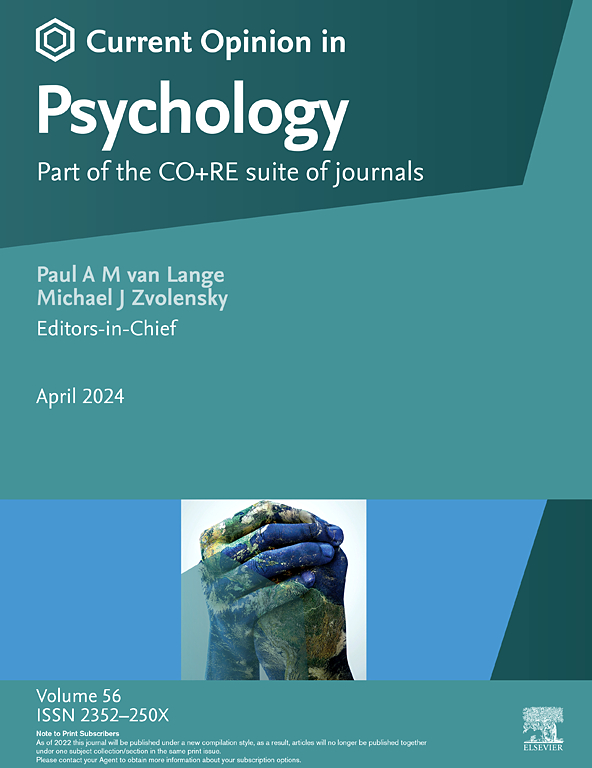Consequences of adding context in personality assessment
IF 6.9
2区 心理学
Q1 PSYCHOLOGY, MULTIDISCIPLINARY
引用次数: 0
Abstract
Contextualized personality inventories and situational judgement tests (SJTs) display relatively high predictive validity for context-specific outcomes. However, their effectiveness can vary significantly depending on the degree of contextualization and the development method used. For personality inventories, gains in predictive validity tend to be lowest for instructional contextualization, higher for tagged contextualization, and highest for full contextualization. Moreover, test–taker reactions seem most favorable to fully contextualized inventories. However, the benefits of contextualization might vary across personality traits. Unlike traditionally developed SJTs, construct-driven SJTs can also measure specific personality traits, making them fully contextualized personality assessments. This approach opens new avenues for investigating the interplay between situations and personality. Moreover, construct-driven SJTs offer multiple advantages over traditional SJTs, including higher internal consistency, higher construct validity, and broader applicability.
在人格评估中加入情境的后果
情境化人格量表和情境判断测验(sjt)对情境特定结果显示出较高的预测效度。然而,它们的有效性可能因情境化程度和所使用的开发方法而有很大差异。对于人格量表,预测效度的增益倾向于教学情境化最低,标记情境化较高,完全情境化最高。此外,考生的反应似乎最有利于完全情境化的量表。然而,情境化的好处可能因性格特征而异。与传统的sjt不同,建构驱动型sjt还可以测量特定的人格特征,使其成为完全情境化的人格评估。这种方法为研究情境和个性之间的相互作用开辟了新的途径。此外,与传统的sjt相比,构造驱动的sjt具有更高的内部一致性、更高的构造效度和更广泛的适用性等优点。
本文章由计算机程序翻译,如有差异,请以英文原文为准。
求助全文
约1分钟内获得全文
求助全文
来源期刊

Current Opinion in Psychology
PSYCHOLOGY, MULTIDISCIPLINARY-
CiteScore
12.10
自引率
3.40%
发文量
293
审稿时长
53 days
期刊介绍:
Current Opinion in Psychology is part of the Current Opinion and Research (CO+RE) suite of journals and is a companion to the primary research, open access journal, Current Research in Ecological and Social Psychology. CO+RE journals leverage the Current Opinion legacy of editorial excellence, high-impact, and global reach to ensure they are a widely-read resource that is integral to scientists' workflows.
Current Opinion in Psychology is divided into themed sections, some of which may be reviewed on an annual basis if appropriate. The amount of space devoted to each section is related to its importance. The topics covered will include:
* Biological psychology
* Clinical psychology
* Cognitive psychology
* Community psychology
* Comparative psychology
* Developmental psychology
* Educational psychology
* Environmental psychology
* Evolutionary psychology
* Health psychology
* Neuropsychology
* Personality psychology
* Social psychology
 求助内容:
求助内容: 应助结果提醒方式:
应助结果提醒方式:


